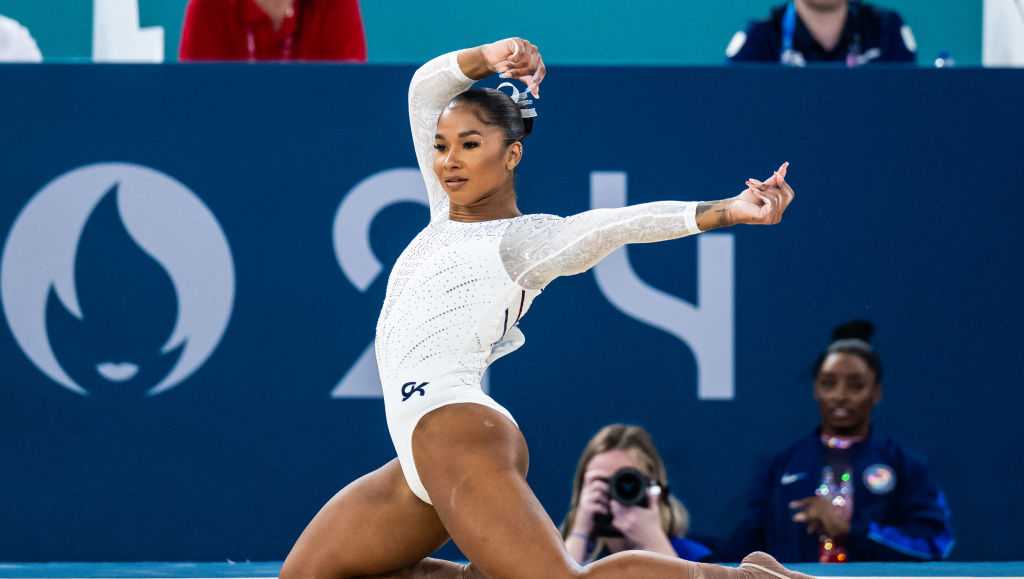Jordan Chiles’ Lawyers Claim Documentary Evidence Shows Medal Stripping Based on ‘Factual Error’
3 min read

Jordan Chiles, the American gymnast, has taken significant legal action to reclaim her stripped Olympic bronze medal, submitting a new application to the Federal Supreme Court of Switzerland. Her legal team argues that fresh documentary footage supports their claim, highlighting what they believe to be a critical error in the previous ruling by the Court of Arbitration for Sport (CAS).
Chiles’ attorneys are seeking to reopen CAS proceedings to introduce evidence they allege was not previously considered. This new evidence, they state, consists of video and audio recordings captured by a documentary crew during the women’s gymnastics floor finals. The attorneys contend that these recordings demonstrate a factual mistake in CAS’s ruling, particularly regarding the timing of Chiles’ coach’s inquiry about her score.
According to the statement from Chiles’ legal team, CAS concluded that her coach, Cecile Landi, was four seconds late in filing an inquiry, which led to the decision to strip Chiles of her medal. However, they assert that the new footage clearly shows the inquiry was submitted on time.
Additionally, USA Gymnastics (USAG) has also filed a brief supporting the reopening of the CAS decision, stating that it possesses evidence proving Landi filed the inquiry well within the one-minute timeframe required by FIG rules. In their statement, USAG emphasized that the audiovisual evidence should have been considered by CAS and that it supports Chiles’ rightful bronze-medal finish.
“This filing is a request for CAS to revisit the arbitration based on a clearer understanding of the facts,” USAG stated. “Jordan has publicly expressed that this case is about her peace and justice, and the fair treatment of all athletes. We are committed to pursuing justice for her.”
The controversy traces back to the floor exercise final in Paris, where Chiles initially finished fifth after receiving a score of 13.666. Following her performance, Landi challenged the judges’ score, which resulted in a revision that added 0.1 points, elevating Chiles’ score to 13.766 and securing the bronze medal.
This decision sparked international backlash, with the Romanian prime minister even announcing a boycott of the Olympics’ closing ceremony in protest of the treatment of their gymnast, Ana Bǎrbosu, who was initially thought to have clinched the bronze.
The Romanian team contested the timing of Chiles’ challenge, claiming it was submitted after the one-minute deadline. CAS ruled in their favor, asserting that the inquiry was indeed late by four seconds, which led to the reinstatement of Chiles’ original score of 13.666 and the subsequent awarding of the bronze medal to Bǎrbosu.
Chiles’ recent legal maneuvers follow a previous filing made on September 16, in which she opted to appeal CAS’s decision to the Federal Supreme Court of Switzerland. The United States Olympic and Paralympic Committee (USOPC) has also voiced its commitment to supporting Chiles in her pursuit of recognition.
“We are dedicated to ensuring that Chiles receives the acknowledgment she deserves,” the USOPC stated last week. “Given the serious errors and oversights by CAS, we are resolute in our commitment to uphold the truth in this matter.”
Chiles’ case has garnered considerable attention, not only for the potential impact on her career but also for its implications regarding fairness in sports. As her legal team and supporters rally for justice, the outcome of this appeal could reshape the narrative surrounding her Olympic experience and the integrity of competitive gymnastics.
With the Federal Supreme Court of Switzerland now reviewing this new evidence, the future remains uncertain for Chiles, but her determination to reclaim her medal underscores her resilience and the importance of fair treatment in athletics.